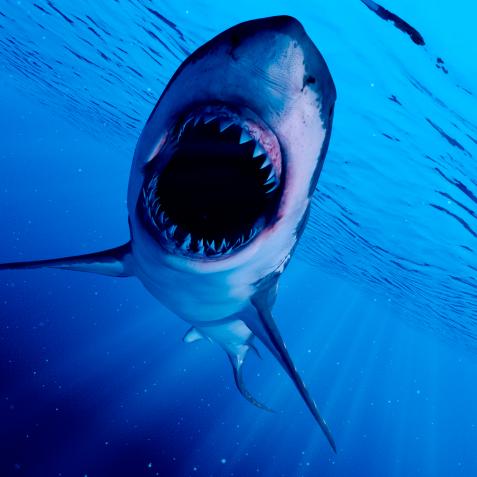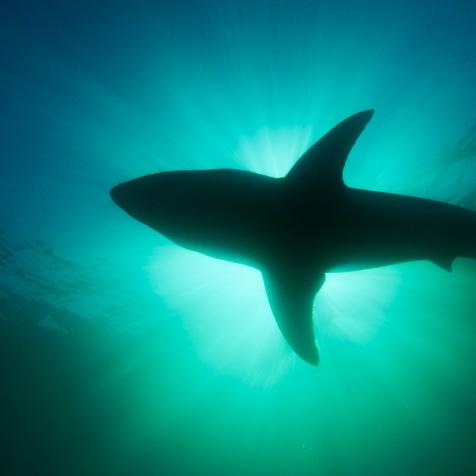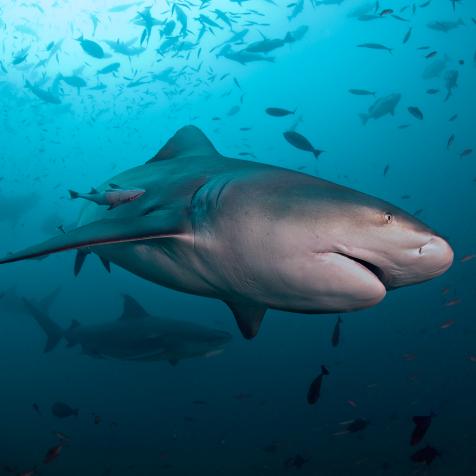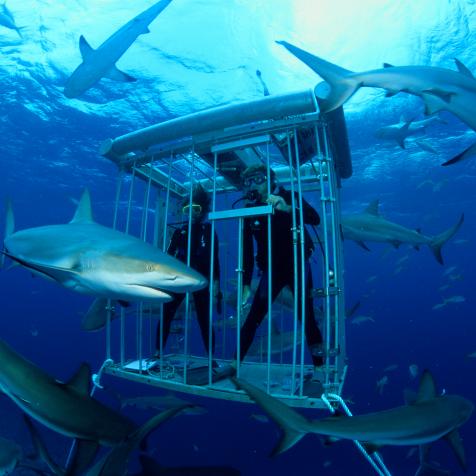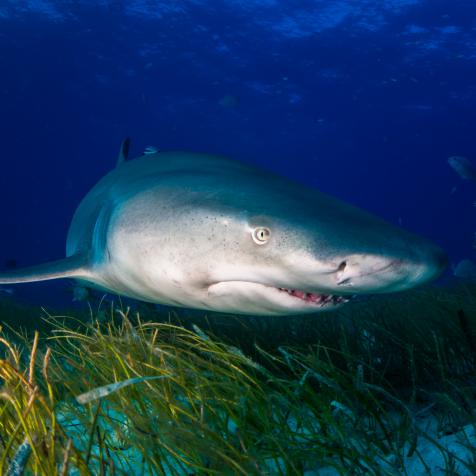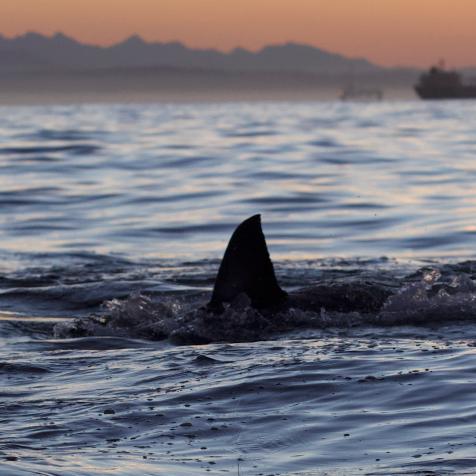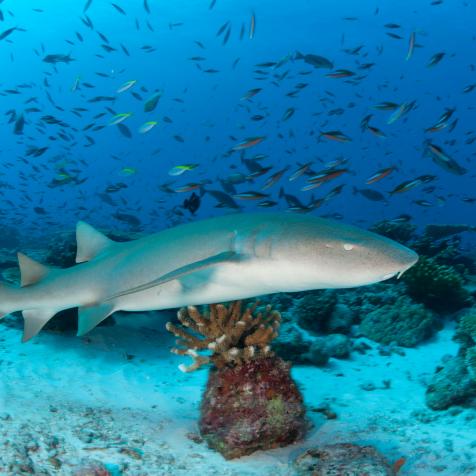
King of the (Sea) Monsters

This story begins like any good Godzilla flick: the unsuspecting scientist, perfectly specialized for their twist of fate, does something mundane. Then ‘BOOM!’ the monster appears--in this case the Godzilla shark.
For paleontologist John-Paul Hodnett, a specialist in prehistoric sharks, he and colleagues were exploring an ancient, brackish (a mix of salt and fresh water) lagoon near the New Mexico Museum of Natural History & Science (NMMNHS). As they were leaving, Hodnett stumbled upon the ‘BOOM!’, which honestly was more like a ‘tap-tap’ as Hodnett’s pocketknife hit something. In a real Godzilla movie, this discovery would send everyone running for the next 90 minutes. But with Godzilla shark, Hodnett and a team of paleontologists carefully excavated for the next seven years.

New Mexico Museum of Natural History & Science
To understand how the now scientifically named Dracopristis hoffmanorum earned its Godzilla shark nickname, Chris Mowry, creative manager at Toho International (the creators of Godzilla) weighs in. “Since the character's creation in 1954, Godzilla has become synonymous with things that are extremely large and often terrifying.” At 6.7 ft in length, the Godzilla shark appears to be the largest predatory fish discovered in the ancient lagoon. With large jaws bearing 14 rows of teeth and fortified by dorsal spines, including one more than a quarter of its own body length, the Godzilla shark was no doubt terrifying to the prey in its habitat. Mowry goes on to say that, “Godzilla's origins [are] as an ocean-dwelling dinosaur” and fittingly, the Godzilla shark existed around 252 million years ago.

New Mexico Museum of Natural History & Science
Incredibly, the Godzilla shark — an adult female — is the most complete fossil ever found in North America for ctenacanth (tee-na-can-th) sharks. With impressions of the soft tissue visible, this is a pretty big deal, since cartilaginous skeletons do not preserve well. Most commonly, only the calcified teeth of prehistoric sharks remain. The fossil of Godzilla shark revealed it as perfectly adapted to shallow, brackish estuaries (like a lagoon). Moving slowly at first, the Godzilla shark was capable of quick maneuvers, making it the perfect ambush predator. Looking at extant shark species, it can be compared to bull sharks (Carcharhinus leucas) or the common sawfish (Pristis pristis), both of which reside in coastal estuaries.

New Mexico Museum of Natural History & Science
Mowry concludes his thoughts on the Godzilla shark by saying, “The nickname given to it just goes to show that Godzilla is one of the most beloved pop culture characters of all time.” And just like any good Godzilla movie, this story leaves your imagination primed for a sequel! That’s because shark spines, like those found on the Godzilla shark, are for protection, not predation. During the excavation of Godzilla shark, paleontologists also found evidence of a visitor to the lagoon, the known species Glikmanius occidentalis, a 9 - 14 foot-long prehistoric shark.
For more about sharks, stream your favorite SHARK WEEK shows on discovery+. Download and subscribe now!









